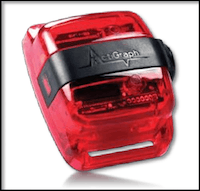About Healthy Active Learning
Healthy Active Learning is a nationwide initiative that aims to improve the wellbeing of children and young people through healthy eating, drinking and quality physical activity.
It’s a joint government initiative between Sport New Zealand, the Ministry of Health and the Ministry of Education.
Find out more about the initiative on Sport New Zealand’s website
Read the full evaluation report
Check out Healthy Active Learning on Facebook
Inclusion criteria
We’re recruiting schools from across New Zealand to become intervention and control schools.
Intervention schools
Intervention schools receive support from Healthy Active Learning Advisors and are willing to be part of the evaluation.
Control schools
Control schools do not receive support from Healthy Active Learning Advisors, but are interested in joining the study and willing to be part of the evaluation.
Scope of evaluation
A team of evaluators from Massey University surveyed selected schools for 2 weeks in 2020/2021, 2022/2023 and 2024/2025.
During this time the evaluation team will evaluate the effect Healthy Active Learning has had on:
- school food policy, practices and food availability
- students’ physical activity levels and motivation to be physically active
- students’ engagement and how they are socially connected in the classroom
- teachers’ practices
- whānau-observed changes in tamariki.
How evaluation will take place
The evaluation teams will collect data from a range of different people using multiple methods within the school setting.
All evaluation teams are police-checked and trained to work with children. Their aim is to work with schools to collect data with as little disruption as possible.
Tamariki
Questionnaires will be collected during class time.
The children’s physical activity is collected by a wristwatch over seven days (some children only).
The watch works like a pedometer or step counter. It does not have a GPS tracker to identify where students are, or contain a camera.

Example of a wristwatch used in the study
Teachers and principals
Questionnaire data is collected at the same time as the children’s where possible. Focus groups take place after school.
Whānau
Questionnaires are collected before and after school. Focus groups occur after school (kura in Gisborne only).
School requirements
Schools are be required to:
- allow at least 1 class per year level to be part of the evaluation
- allocate a coordinator who will be the main contact person for Massey University
- have parents sign the consent form for children to participate in the evaluation.
Incentives for participation
Intervention and control schools are gifted a $100 Rebel Sport voucher as a thank you for hosting the evaluation team.
Teachers, children and whānau go in the draw to win a $100 supermarket voucher. There is 1 prize draw per group for each region.
Children’s consent form and participant information sheets
Fill out the children’s consent form
Download the participant information sheets to get detailed information about what’s involved when you participate in the evaluation.
Surveys
Early Learning Services food policy and practices survey
This survey is intended for completion by someone involved in the management of the ELS or familiar with policy and practices surrounding food.
The topics covered include your Early Learning Service’s (ELS) food environment, particularly policy and practices to do with food and drinks.
Go to the ELS food policy and practices survey
Teachers’ survey
This survey is intended for completion for all primary, intermediate, secondary and ELS teachers in New Zealand, including principals and senior management.
The topics covered include your teaching practices, confidence in teaching health and PE, PLD opportunities, your school’s culture, student physical activity opportunities and student engagement.
Whānau engagement survey
This survey is intended for distribution by school leads to parents and whānau of children in the school.
The topics covered include your child/children’s experiences with physical activity and health and PE at school, as well as opportunities they have to be active in the community.
Academic papers
Find out more about the Healthy Active Learning initiative.
Jackson et al (2022), Avoiding the odd one out: social cohesion in New Zealand primary classrooms
Pillay et al (2022), Examining the New Zealand school food environment: what needs to change?
Latest news
Read the latest news about the Healthy Active Learning initiative.
Healthy Active Learning at Randwick School, Lower Hutt